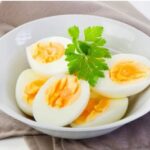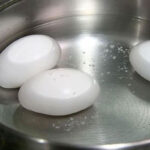Boiled eggs may seem like a simple dish to prepare, but achieving the perfect boil can be tricky. Many people experience issues with the eggs cracking or having an unappealing appearance after boiling.
To overcome these issues, follow these steps:
First, place the eggs in a pot and cover them with water. Add a few slices of lemon to the pot and bring the water to a boil. Allow the eggs to boil for about 5 minutes, then turn off the heat and let the eggs sit in the hot water for a few more minutes to ensure they are fully cooked.
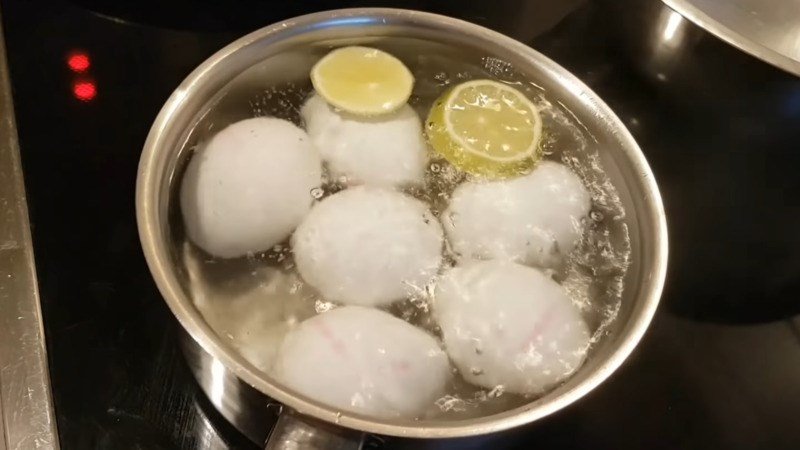
Next, remove the eggs from the hot water and plunge them into a bowl of cold water.
You will find that the egg shells come off easily and cleanly.
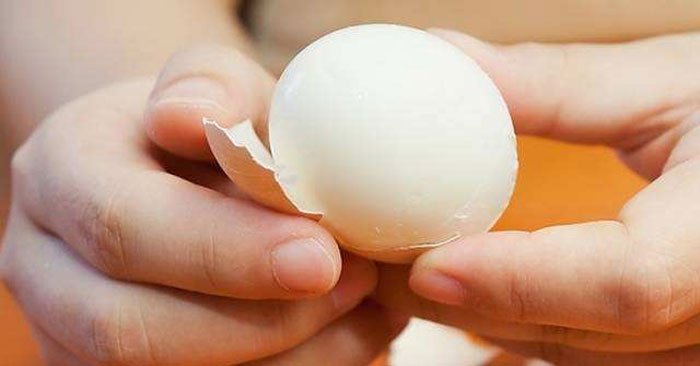
To prevent the eggs from cracking during boiling, use cold water. Equal temperatures for the water and eggs ensure even cooking and prevent cracking. If your eggs are refrigerated, bring them to room temperature before boiling.
Additionally, to avoid cracked shells, you can use a needle to gently prick a small hole at the wider end of the egg, allowing steam to escape.
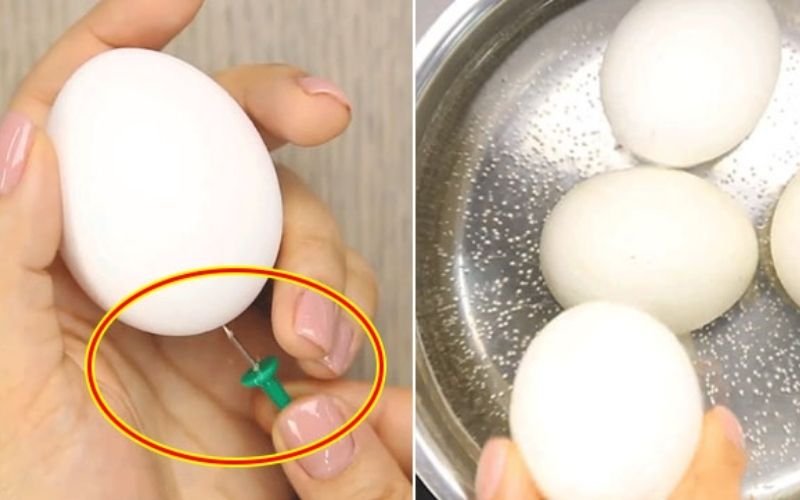
When the water boils, reduce the heat slightly to prevent the eggs from jumping around and cracking.
From here, you can adjust the boiling time to your preference. After about 4 minutes of boiling, the egg whites will start to set, while the yolks remain soft and runny.
5 minutes: Egg whites are set, yolks are soft and slightly runny.
6 minutes: Egg whites are set, yolks are a bit more cooked but still soft.
8 minutes: Egg whites are set, yolks are set but still slightly soft.
10 minutes: Egg whites are set, yolks are firm and have a greenish-gray ring around them, with a slightly soft center.
12 minutes: Both whites and yolks are fully cooked and firm.
14 minutes: Egg whites and yolks are overcooked, and the outer ring of the yolk will turn greenish-gray.
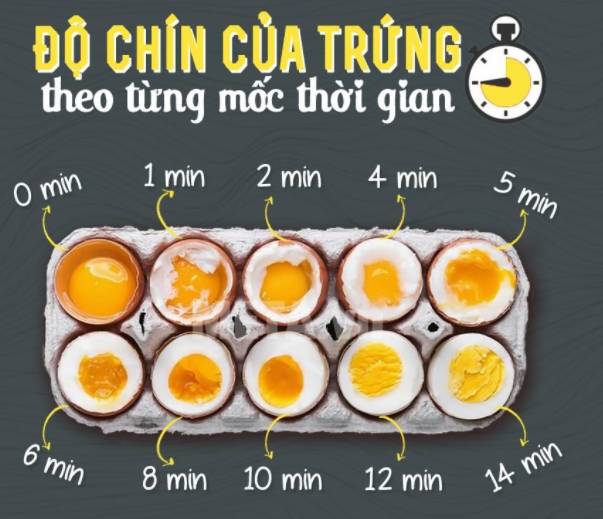
Source: Khoevadep
“The Secret Ingredient for Perfectly Boiled Eggs: Keep Them Crack-Free, Nutritious, and Beautiful”
When boiling eggs, it’s common to encounter cracks in the shell, which can cause water to seep in and result in an unpleasant odor and appearance. To avoid this issue, simply add a pinch of salt to the boiling water or rub a lemon around the egg shell before boiling. This will ensure that your eggs turn out perfectly cooked, without any unsightly cracks, and tasting delicious too!
The Magic Ingredient: Apple Cider Vinegar in the Kitchen
The culinary uses of apple cider vinegar are a well-kept secret no more. This versatile ingredient can enhance the flavor of your dishes, taking them to the next level. With its unique tangy taste, apple cider vinegar can be your secret weapon in the kitchen, adding a delicious twist to your recipes and making your meals even more mouth-watering. Embrace these tips and tricks to elevate your cooking and impress your taste buds!


























